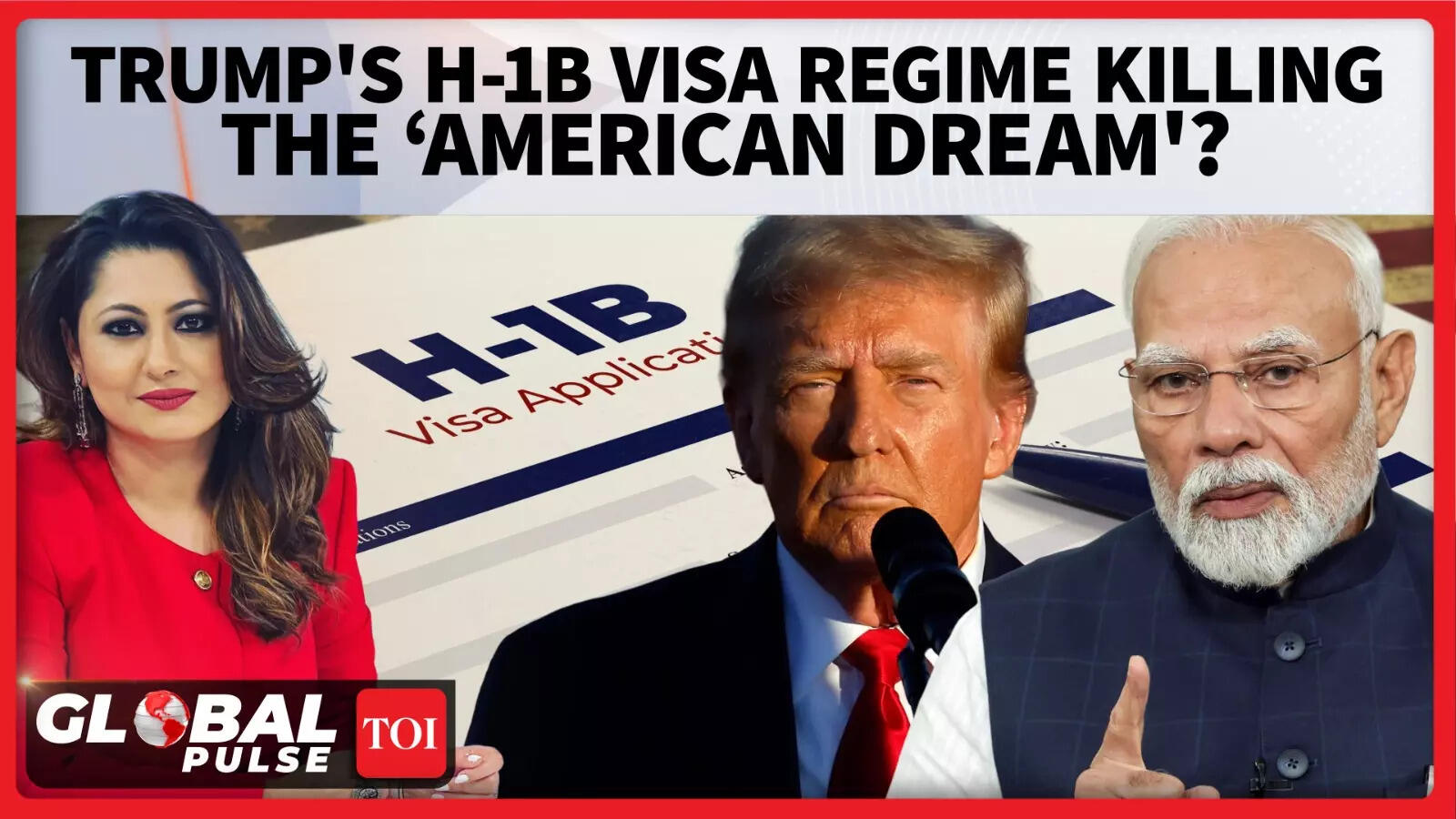Top Stories
Trump’s H-1B Visa Changes Raise Concerns for Indian Professionals

The recent changes to the H-1B visa program by the Trump administration have sparked significant concern among Indian students and professionals. The new regulations, introduced in October 2023, are seen as part of a broader trend of escalating tariffs and protectionist trade policies that the President has implemented, particularly targeting India. These actions have strained the historically strong ties between the United States and India, leading to a sense of uncertainty about the future for many who aspire to pursue opportunities in the U.S.
Despite Donald Trump’s continued praise for Indian Prime Minister Narendra Modi, referring to him as a “great friend,” the policies emerging from the White House are causing friction. The H-1B visa is a critical pathway for skilled workers from India, who make up a significant portion of the program’s users. The recent changes have left many fearing for their prospects in what they once considered the embodiment of the American Dream.
In the context of Trump’s “America First” agenda, many analysts argue that the approach is increasingly isolating the United States on the global stage. As the administration imposes steep tariffs and restrictive immigration policies, the perception is shifting. Some experts contend that this strategy may not be promoting American interests as intended, but rather leading the nation towards greater economic isolation.
The implications of these policy changes are profound. The H-1B visa program has been a vital component of the U.S. economy, allowing companies to fill gaps in the labor market with skilled professionals from around the world. The administration’s recent actions have triggered panic among potential applicants, as many now view the likelihood of obtaining these visas as increasingly slim.
Given the backdrop of ongoing trade tensions, the sentiment among Indian professionals and students is one of disillusionment. Many have invested significant time and resources in their education and careers with the expectation of contributing to the U.S. economy. The fear is that these new regulations will effectively shut the door on their aspirations.
As the situation develops, the impact of these policies on the U.S.-India relationship will continue to unfold. The ongoing trade wars and changes in immigration policy signal a shift that could have lasting repercussions for both nations. The dialogue surrounding these issues remains crucial in assessing how they will affect the future of international collaboration and economic growth.
In summary, the changes to the H-1B visa program represent more than just a bureaucratic adjustment; they signify a potentially transformative moment in U.S.-India relations. The ongoing tension and uncertainty serve as a reminder of the delicate balance between national policy and international partnerships, leaving many wondering about the future of opportunities in the United States.
-

 World5 months ago
World5 months agoSBI Announces QIP Floor Price at ₹811.05 Per Share
-

 Lifestyle5 months ago
Lifestyle5 months agoCept Unveils ₹3.1 Crore Urban Mobility Plan for Sustainable Growth
-

 Science4 months ago
Science4 months agoNew Blood Group Discovered in South Indian Woman at Rotary Centre
-

 World5 months ago
World5 months agoTorrential Rains Cause Flash Flooding in New York and New Jersey
-

 Top Stories5 months ago
Top Stories5 months agoKonkani Cultural Organisation to Host Pearl Jubilee in Abu Dhabi
-

 Sports4 months ago
Sports4 months agoBroad Advocates for Bowling Change Ahead of Final Test Against India
-

 Science5 months ago
Science5 months agoNothing Headphone 1 Review: A Bold Contender in Audio Design
-

 Top Stories5 months ago
Top Stories5 months agoAir India Crash Investigation Highlights Boeing Fuel Switch Concerns
-

 Business5 months ago
Business5 months agoIndian Stock Market Rebounds: Sensex and Nifty Rise After Four-Day Decline
-

 Sports4 months ago
Sports4 months agoCristian Totti Retires at 19: Pressure of Fame Takes Toll
-

 Politics5 months ago
Politics5 months agoAbandoned Doberman Finds New Home After Journey to Prague
-

 Top Stories5 months ago
Top Stories5 months agoPatna Bank Manager Abhishek Varun Found Dead in Well









